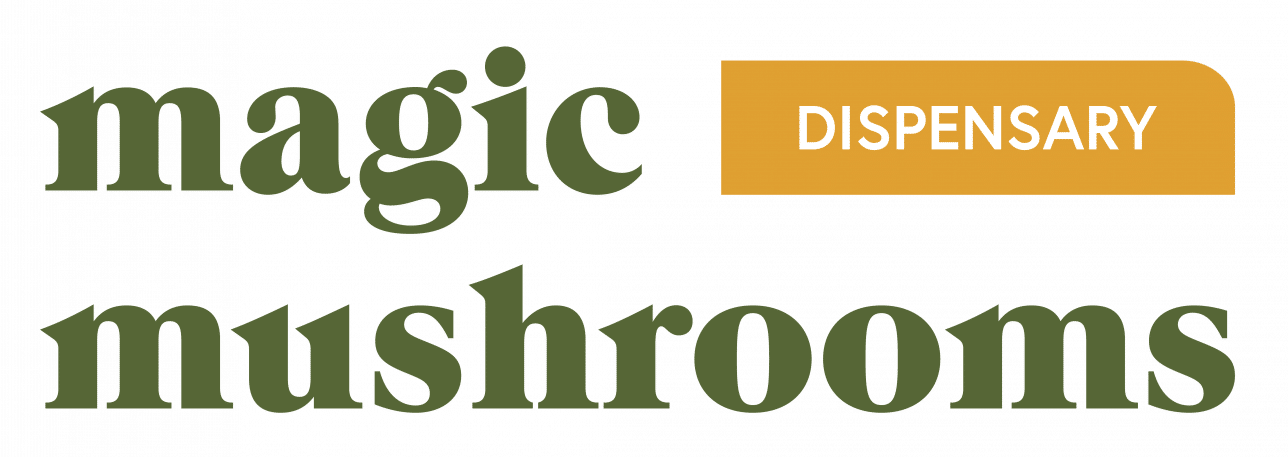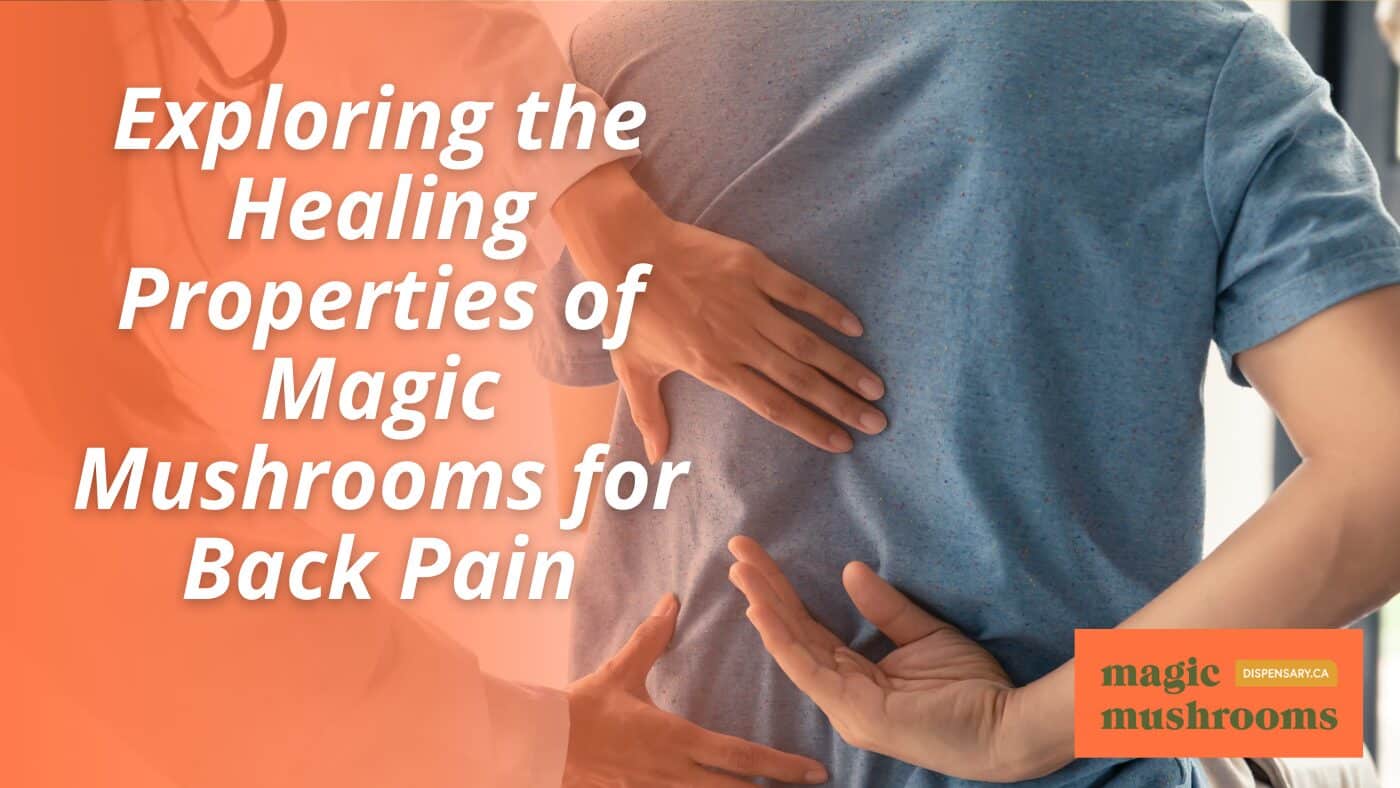The potential health benefits of magic mushrooms, which are well-known for their hallucinogenic effects, are becoming more widely recognized. Although they have been utilized historically in many cultures, contemporary science is reevaluating their significance in pain management. This article looks at both modern studies and traditional methods to investigate the potential therapeutic benefits of these fungi for back pain.
Key Takeaways
- Many cultures have been using magic mushrooms for thousands of years to treat pain.
- The primary ingredient in magic mushrooms, psilocybin, modifies brain circuits and alters our perception of pain.
- Magic mushrooms may help alleviate persistent back pain, according to recent clinical investigations.
- Considering the harsh side effects of many prescription medicines, magic mushrooms may provide a safer option.
- Magic mushrooms’ legal position is evolving as more nations investigate their potential medical use.
Historical Use of Magic Mushrooms in Pain Relief
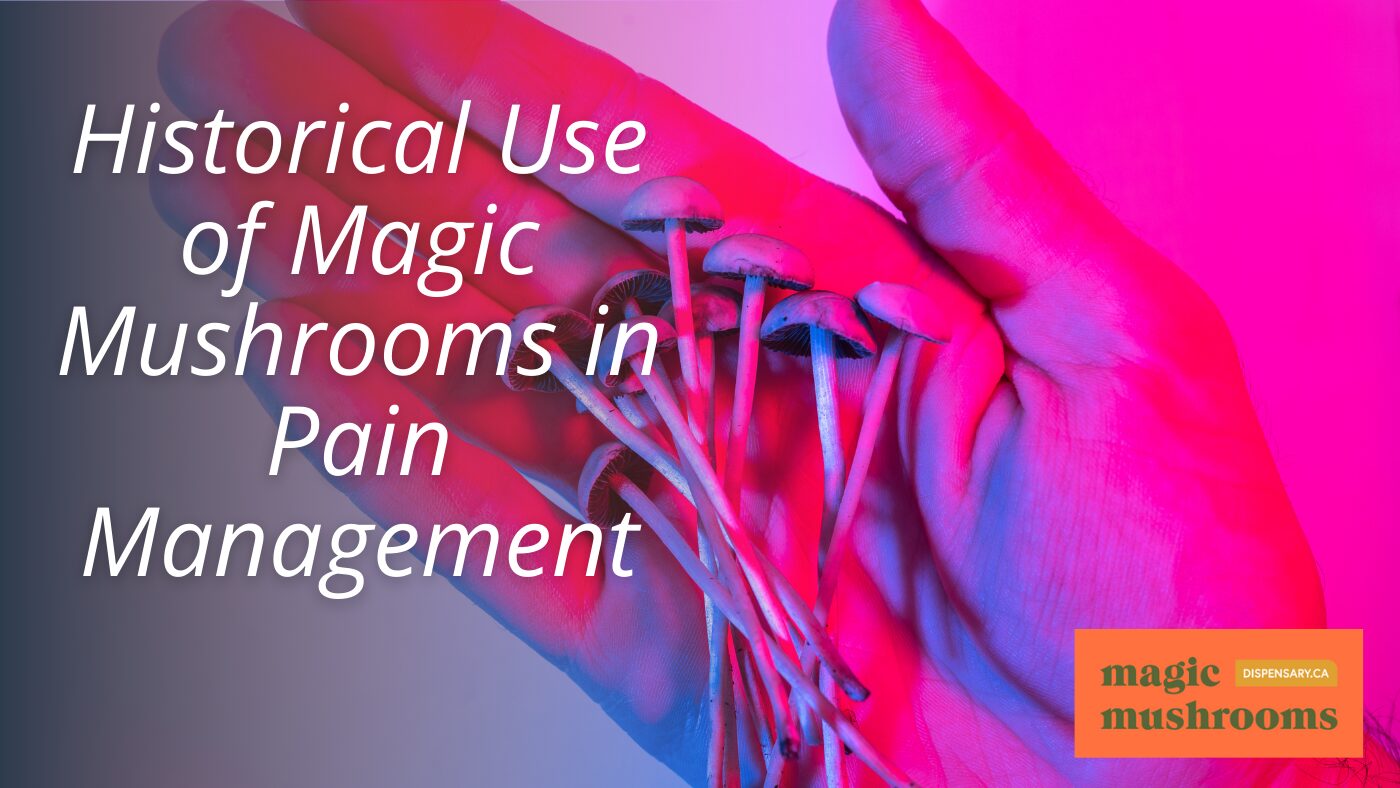
Historical Customs and Cultural Importance
Many societies have been using magic mushrooms for thousands of years. These mushrooms were part of the medicinal and ritual activities of ancient civilizations like the Aztecs. They thought these mushrooms could link them to the spiritual realm and possessed divine qualities. These traditional cures were used for both spiritual and medical conditions, including pain management.
Pain Relief Through Traditional Remedies
Magic mushrooms were commonly used to relieve pain in traditional medicine. To treat a range of pains, healers would make infusions or teas from the mushrooms. In many traditional civilizations, where natural cures were the main source of medicine, this practice was widespread. The idea behind using magic mushrooms to treat pain was that they could change how pain was seen and make it easier to cope with.
Ancient Knowledge Rediscovered in the Modern Era
Magic mushrooms have been the subject of renewed research in recent years due to their potential medical benefits. Scholars are currently investigating the potential integration of these archaic methods into contemporary medicine. Psilocybin, the main ingredient in magic mushrooms, has been demonstrated in studies to have a profound impact on pain management and perception. This current rediscovery opens the door to novel therapies that fuse traditional knowledge with cutting-edge research.
The science underlying magic mushroom therapy blends traditional healing methods with contemporary approaches to mental health care.
The Action Mechanisms of Psilocybin
Neurochemical Routes
The primary way that psilocybin, the active ingredient in magic mushrooms, impacts the brain is through its interaction with serotonin receptors. Changes in awareness and perception may result from this interaction. Psilocybin may aid improve pain management by assisting in the development of new emotional and informational neural connections in the brain, according to research.
Effects on Neuroplasticity
Enhancing neuroplasticity is one of psilocybin’s most intriguing properties. The brain’s capacity to rearrange itself by creating new neural connections is known as neuroplasticity. This may help the brain create new pathways for processing pain signals, which can be especially helpful in the treatment of chronic pain.
Interaction with the Perception of Pain
The effect of psilocybin on pain perception is another interesting topic. Psilocybin may lessen pain perception by changing how the brain and spinal cord interpret pain signals, according to theory. Because of this, it might be a good substitute for conventional painkillers, which frequently have a variety of negative effects.
Magic Mushrooms: A Potential Treatment for Back Pain in Clinical Trials
Research Designs and Approaches
Psilocybin, a substance included in magic mushrooms, is being studied by researchers for its potential to treat persistent back pain. The University of California Health Psilocybin Clinical Trials for 2024 are one prominent example. The purpose of this double-blind, placebo-controlled pilot trial is to ascertain whether psilocybin can be given to people with chronic pain disorders in a safe manner. Two groups will be included in the trial, one of which will get psilocybin and the other a placebo, enabling a comparison of the results.
Initial Results
According to preliminary findings from a number of trials, psilocybin may provide considerable alleviation for people with persistent back pain. One University of Virginia study, for example, looks into whether psilocybin can benefit patients by addressing the central nervous system-regulated emotional elements of pain. According to preliminary statistics, participants report feeling less discomfort and having better emotional health.
Future Paths for Research
Subsequent investigations will center on optimizing dosage regimens and comprehending the enduring impacts of psilocybin on persistent back pain. Scholars are keen to investigate the possible advantages of integrating psilocybin with additional medicines to augment pain alleviation and elevate patients’ general quality of life.
Comparative Study of Magic Mushrooms VS Traditional Pain Relievers
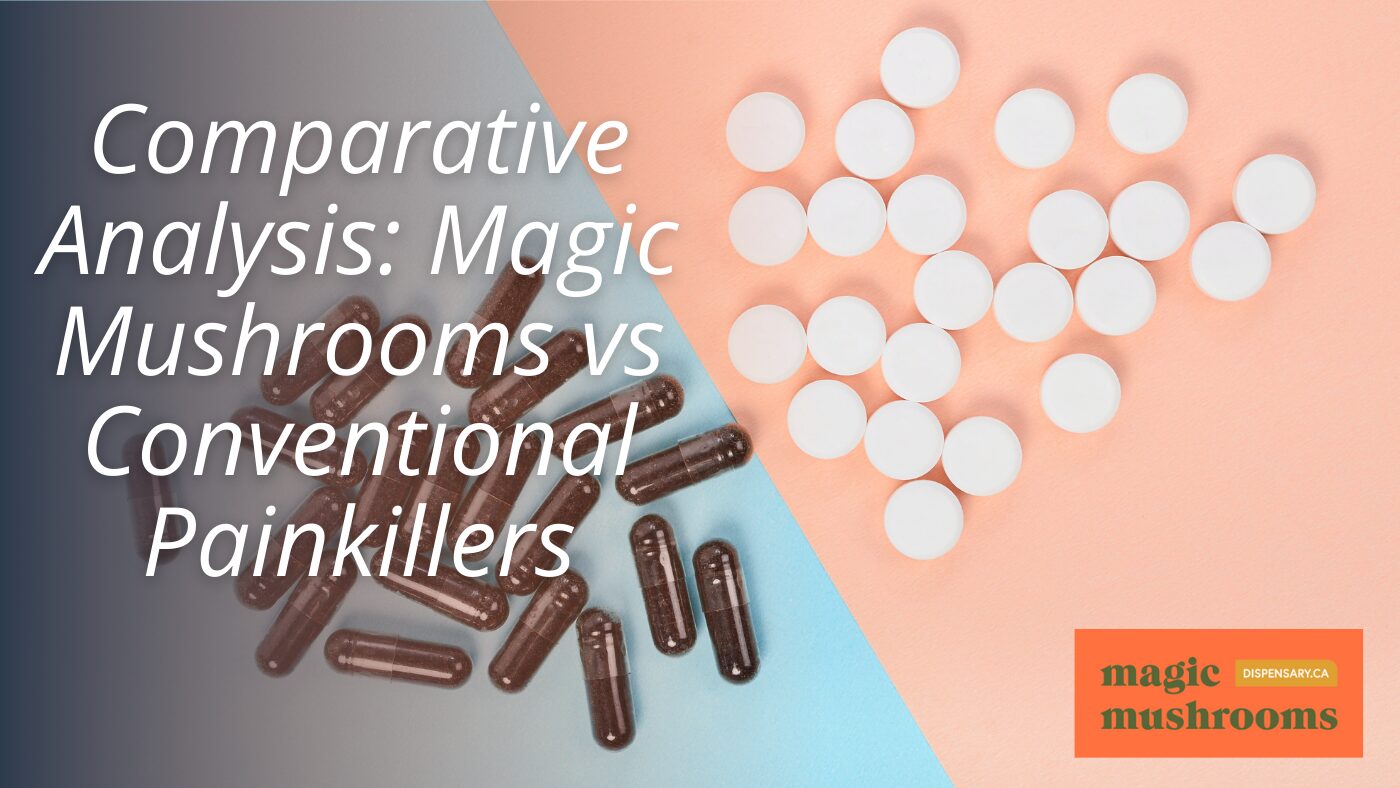
Safety and Efficacy Profiles
Psilocybin-containing magic mushrooms in particular have shown promise in the treatment of chronic pain. According to preliminary research, psilocybin may help people feel less discomfort and live better. Opioids, on the other hand, are commonplace painkillers that work well but have a high risk of addiction and other negative effects.
Prolonged Effects and Side Effects
Symptoms of conventional painkillers include nausea, vertigo, and dependence. However, magic mushrooms are generally thought to be safer over the long run, even though they can have short-term psychological effects like hallucinations. Psilocybin’s advantages for neuroplasticity also present the possibility of long-lasting improvements in brain function.
Case studies and patient testimonials
After taking magic mushrooms, several people have seen great alleviation from chronic pain issues, including back pain. These testimonies demonstrate how psilocybin, as opposed to conventional medications, may provide a more comprehensive approach to pain management.
Ongoing clinical investigations, such the UCSF lower back pain clinical trials for 2024, which seek to assess the efficacy of psilocybin in assisting patients in better managing their chronic low back pain, demonstrate the growing interest in psilocybin therapy.
Magic Mushrooms and Conditions of Prolonged Pain
Back Ache
A common problem is chronic back pain, which becomes more prevalent as people age. The primary ingredient in magic mushrooms, psilocybin, may be able to lessen this agony, according to preliminary data. Psilocybin, according to researchers, may be able to change brain circuits, potentially treating the underlying cause of chronic pain as opposed to its symptoms.
The fibromyalgia
Fatigue, regional soreness, and generalized musculoskeletal pain are the hallmarks of fibromyalgia. According to certain research, psilocybin may provide alleviation by interacting with the brain’s serotonin receptors. This exchange may lessen the impression of pain while enhancing general functionality and quality of life.
Cluster Headaches
Excruciating cluster headaches frequently respond poorly to traditional therapies. A few scientific studies and anecdotal data point to psilocybin as a potential treatment for both the frequency and intensity of severe headaches. Patients who do not react to conventional therapy may find psilocybin to be a potential alternative, as evidenced by the notable improvements reported by patients.
Further research is necessary to determine the therapeutic potential of psychedelics for chronic pain. For people with chronic pain, these drugs may not only reduce pain but also enhance functioning and quality of life.
Psilocybin’s Psychological Advantages in Pain Relief
Reduction in Anxiety and Depression
Since anxiety and depression are frequently associated with chronic pain, psilocybin has demonstrated potential in lowering them. Based on preliminary data, psychedelics may elevate mood and alleviate the psychological effects of pain. A higher general quality of life can result from this improvement in mental health.
Enhanced Quality of Life
Research has shown that psilocybin can result in significant and long-lasting improvements in life quality. Psilocybin has the potential to heal the underlying causes of chronic pain as well as its symptoms by remodeling and modifying brain connections. Reduced impairment and enhanced functionality are possible outcomes of this all-encompassing strategy.
Emotional Resilience
The neuroplastic properties of psilocybin can promote emotional fortitude. This implies that people might get more resilient to the psychological difficulties brought on by chronic pain. Resilience to stress and adaptation is essential for long-term pain treatment.
According to recent studies, psilocybin may really work by stimulating some brain circuits through the neuroplastic effects of psychedelics.
A Legal and Ethical Perspective

Regulatory Frameworks
The global legal environment surrounding magic mushrooms differs greatly. Because psilocybin is categorized as a forbidden substance in some nations, using it outside of authorized clinical trials is prohibited. Strict guidelines and safety measures are in place to protect clinical trial participants and patients. These rules, nevertheless, may put up obstacles and drive some people to the illicit market.
Clinical Use’s Ethical Implications
The use of magic mushrooms in medicine raises a number of complicated ethical issues. On the one hand, people who have been diagnosed with mental health and/or drug use disorders are treated with a great deal of sensitivity. However, there are serious concerns about the possibility of abuse and the requirement for informed consent. It is imperative that these elements are balanced for moral clinical practice.
Global Perspectives
Diverse nations handle psilocybin regulation in different ways. For example, whereas some countries have decriminalized its usage, others still forbid it completely. This worldwide discrepancy emphasizes the necessity of a coordinated strategy for the ethical and legal use of magic mushrooms in medicine.
Although there are ethical and legal obstacles in the way of incorporating magic mushrooms into conventional treatment, it is nevertheless worthwhile to investigate given the possible advantages for patients.
Magic Mushrooms in Integrative Medicine
Integrative medicine treats the full person, not just the symptoms, by combining traditional and complementary therapies. In this area, magic mushrooms—especially those that contain psilocybin—are becoming more well-known for their ability to reduce pain and enhance mental wellness.
Pain Management Through Holistic Approaches
The three pillars of holistic pain management are mind, body, and spirit. Magic mushrooms can help with this since they provide psychological and emotional advantages in addition to physical relief. Chronic pain issues are frequently associated with sadness and anxiety, both of which psilocybin has been demonstrated to lessen.
Psilocybin in Combination with Other Therapies
Psilocybin therapy can be used with other forms of therapy, like physical therapy and psychotherapy, to improve overall results of treatment. An enhanced quality of life and longer-lasting pain alleviation are possible outcomes of this integrative strategy. Psilocybin, for example, may assist individuals receiving physical therapy participate more fully in their exercises.
Patient-focused Care Frameworks
Treatments are customized to meet each patient’s needs in patient-centered care models. Psilocybin can be useful in this situation. Pain management that takes into account the mental and physical components of pain facilitates a more all-encompassing course of care. This strategy is consistent with integrative medicine’s guiding principles, which place a strong emphasis on treating the full patient and providing individualized care.
A potential area of healthcare is the incorporation of magic mushrooms into pain management techniques, which combine traditional knowledge with cutting-edge research.
Difficulties and Debates in Psilocybin Studies
Scientific Scepticism and Criticism
The scientific community is still split over psilocybin’s potential for therapeutic use, despite increased interest in the drug. Some scientists contend that more thorough investigation is necessary since the evidence available now is insufficient. The historical stigma attached to psychedelic drugs has contributed to this mistrust by limiting funding and support for research.
Placebo Effect Concerns
The placebo effect is a significant obstacle in psilocybin study. Producing a reliable placebo is difficult due to the dramatic alterations in perception that psilocybin can cause. Because of this, it might be challenging to ascertain whether study benefits are attributable to the medicine or to participant expectations.
Barriers to Clinical Adoption
There are many challenges in the way of psilocybin therapy’s therapeutic adoption. The requirement for specialized therapist training, ethical considerations, and regulatory obstacles all contribute to the delayed pace. Large-scale clinical trial endeavors are further complicated by the fact that psilocybin is illegal in many nations.
Examining the enigmatic realm of psilocybin therapy highlights the potential benefits it may offer as well as the major obstacles that need to be removed before it can be used as a standard form of treatment.
Psilocybin’s Potential in Pain Management in the Future
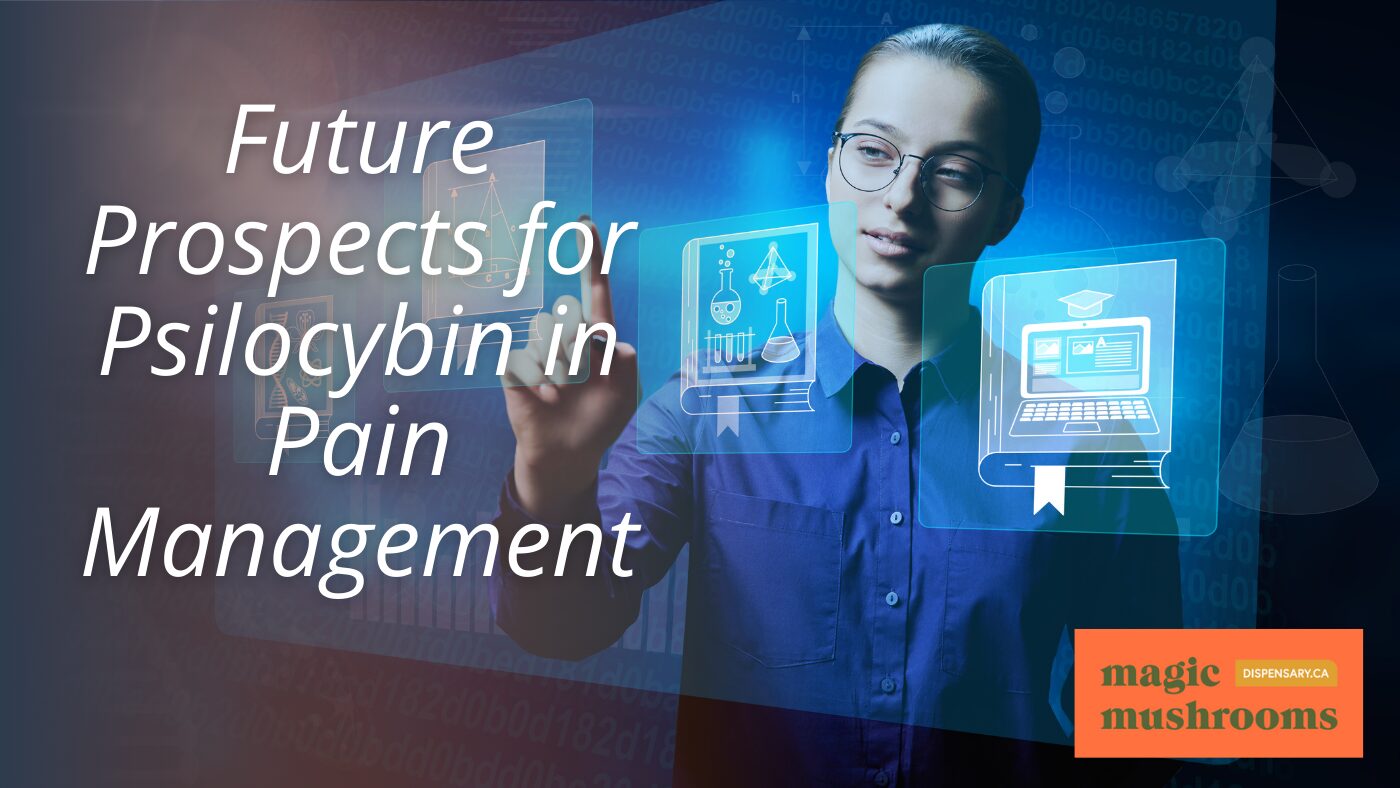
Innovative Treatment Protocols
Psilocybin appears to have a bright future in the treatment of pain, particularly with the creation of creative treatment plans. Scholars are currently investigating diverse dose schemes and modes of administration to optimize treatment outcomes while mitigating possible hazards. Based on preliminary data, psilocybin may modify and reorganize neural networks in the brain, potentially treating the underlying cause of chronic pain instead of merely its symptoms.
Possibility of Wider Use
Psilocybin’s potential extends beyond back pain to other chronic pain conditions. Studies are being conducted to evaluate its efficacy in treating conditions like fibromyalgia and cluster headaches. The interdisciplinary team at PHRI is planning the first pilot study on the effect of psilocybin on phantom limb pain, which could pave the way for broader applications in pain management.
Current and Prospective Research
Many investigations are being conducted to learn more about the advantages and restrictions of psilocybin in the treatment of pain. With these research, we hope to offer more reliable information about its safety and efficacy characteristics. Prospective avenues for investigation encompass brain imaging studies to track the neurochemical alterations brought about by psilocybin and its long-term effects on the perception of pain.
Even though further investigation is required to completely comprehend the medicinal advantages of psilocybin for chronic pain, the current results provide hope for novel treatment approaches. Although there is still a long way to go before more trials are funded and clinical adoption occurs, the journey is worthwhile given the potential rewards.
Psilocybin’s potential in pain relief is bright. Its potential to provide relief where traditional treatments fail is being investigated by researchers. Are you interested in finding out more about psilocybin’s advantages? Explore our product selection and get in-depth insights by visiting our website.
In summary
In conclusion, research into magic mushrooms as a back pain remedy is an area full of promise. Based on available data, psilocybin—the active component of these mushrooms—may provide notable alleviation of persistent pain. This is especially crucial because there is a risk of addiction and serious negative effects with many standard pain management techniques.
It is critical to maintain strict scientific standards and approach any possible treatment with an open mind as research progresses. These natural substances may play a significant role in pain management in the future, giving many people with chronic back pain cause for hope.
